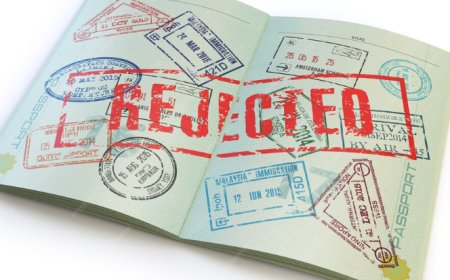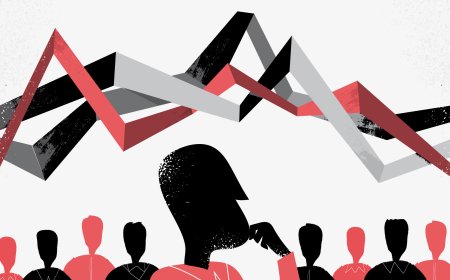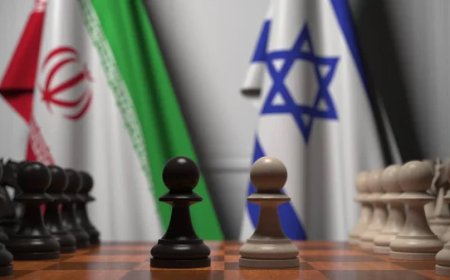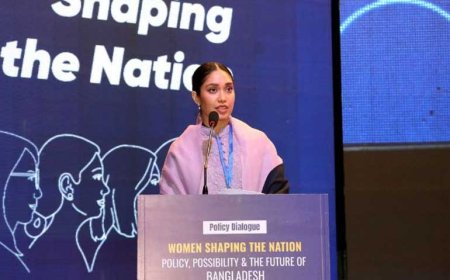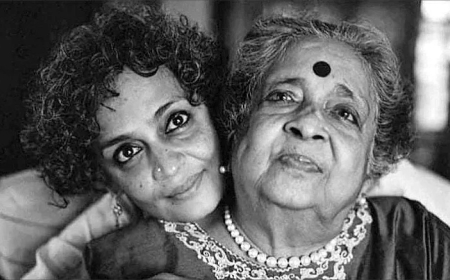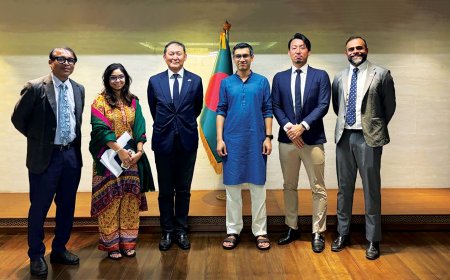The Reluctant President
History does not present Ziaur Rahman as a schemer, clawing for power. It confronted him with moments when silence or paralysis threatened to suffocate the Bangladeshi people. Each time, he stepped forward because no one else would.
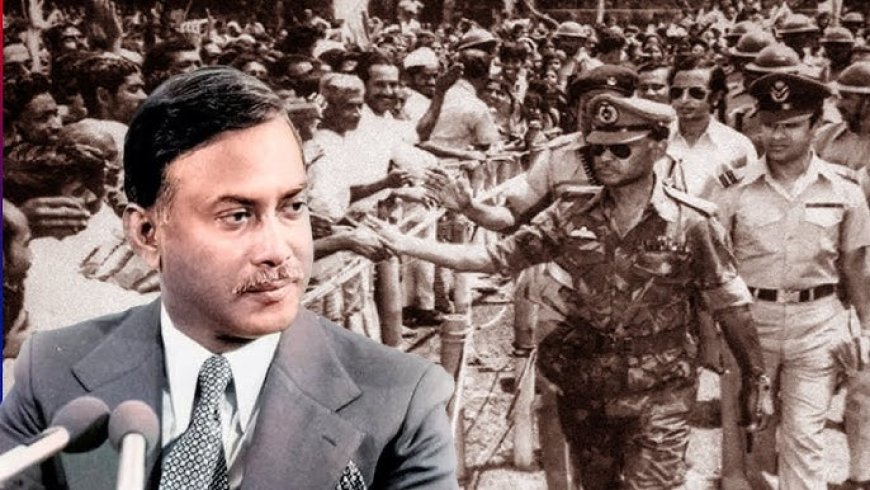
The Prodigal Soldier
Before he declared a nation, he waited for his tongue to melt free.
This isn’t a historian’s fable -- it’s my family’s story. His partner in mischief that day was my aunt Selima Prodhan, known in the family as Jhuti. One winter in Calcutta, the boy we knew as Komol -- Ziaur Rahman to history -- was rummaging for sweets in the icebox. In his impatience, he pressed his tongue against the frozen tray, and it stuck fast.
The children shrieked. Jhuti laughed in half-panic, half-delight. Komol cried out once, then fell silent. His tongue was locked in cold iron agony. A lesser boy would have thrashed and torn himself bloody.
But Komol endured. Patiently and painfully, he waited for the ice to thaw until his tongue came free -- bloodied, but intact.
That childhood scrape turned out to be more than an anecdote. It was the pattern of his life.
Mischievous enough to chase what he wanted, but when crisis struck, he never panicked. He endured, waited, and acted only when the moment allowed. It was a child’s scrape, but it foreshadowed the soldier and the president.
In school, Komol was ordinary. But in 1953, when he entered the Pakistan Military Academy at Kakul, something clicked. The boy who once chased sweets became a top 10% graduate. He chose the East Bengal Regiment, where Bengalis were treated as second-class. He didn’t complain. He endured, and in the 1965 Indo-Pak war, he proved them wrong -- earning the Hilal-i-Jur’at for gallantry.
After the war, he was posted back to Kakul -- this time as an instructor. In the classrooms and parade grounds, he became a mentor to young Bengali cadets.
And here lay the paradox: Zia had spent much of his life outside Bengal, and spoke Urdu and English far more comfortably than Bangla. He wasn’t rooted in Bengali education or Dhaka’s politics. Yet he believed, more stubbornly than most, that Bengalis could achieve more -- if only given the chance.
He drilled his cadets harder, demanded more discipline, and told them bluntly that one day they would have to defend their own land. The Pakistanis will never do it for you. Many of those cadets would later fight in 1971, carrying Zia’s words into the war.
It was another echo of his childhood scrape with the icebox: mischievous enough to test limits, but disciplined enough to endure.
But now his endurance was for his people. Patiently, he was building the backbone of a Bengali officer corps -- long before an independent Bangladesh was even imaginable.
When he declared independence in 1971, his Bengali was halting, awkward. He had spent his life speaking Urdu and English; Bangla was the tongue he had never fully mastered. It was as if his tongue was frozen once again.
But just like that childhood winter, he forced the words out anyway:
“I, Major Ziaur Rahman, on behalf of Sheikh Mujibur Rahman, hereby proclaim the independence of Bangladesh.”
The words were rough, accented, imperfect -- but they were Bangla, and they were enough to give the nation its first true voice.
And in that moment, the prodigal son returned. After a life in barracks and classrooms outside Bengal, after years speaking in borrowed tongues, Ziaur Rahman came home to his own people. The boy Komol, who once bloodied his tongue for sweets, gave his first true words -- in Bangla -- to Bangladesh.
Filling the Vacuum
But independence did not end the silence; it only made the void more dangerous. Sheikh Mujib’s rule suffocated democracy under the Fourth Amendment, smothering parliament into BAKSAL’s one-party grip. He distrusted the army, sidelined officers like Zia, and placed his faith in the Rakkhi Bahini. The republic, just born, was freezing over again.
When General M.A.G. Osmany stepped down as Commander-in-Chief in April 1972, the natural successor by seniority and combat record was Zia. But Mujib did not choose him. Instead, he promoted K.M. Shafiullah -- Zia’s junior -- to Chief of Army Staff. Even Shafiullah later admitted he protested, reminding Mujib that Zia was senior at Kakul. Mujib waved it aside.
Why Shafiullah? Because he was loyal, pliant, and could be controlled. Mujib wanted a chief who would never challenge him -- and built the Rakkhi Bahini under direct government command as a counterweight to the army. Zia, respected but independent-minded, was left boxed in.
But history had other plans.
On August 15, 1975, Mujib was assassinated. General Shafiullah froze. No battalion moved, no defense was mounted. Later, even the Supreme Court would brand his inaction as cowardice. The “controllable” chief could not act when action was all that mattered.
Within ten days, the killers replaced Shafiullah with Zia. The irony was bitter: the man they had once passed over as too dangerous was the only one who could steady the army when it mattered.
On November 3, Brigadier Khaled Mosharraf staged his counter-coup. Zia was placed under house arrest in Dhaka Cantonment, his fate uncertain. That same day, the four national leaders -- Tajuddin, Mansur, Nazrul Islam, and Qamaruzzaman -- were butchered in jail. The founding generation was being erased.
Zia waited. He did not thrash or panic. He endured.
On November 7, soldiers mutinied, stormed the cantonment, killed Khaled Mosharraf, and freed Zia. They carried him forward not because he schemed, but because he was the only man left with legitimacy.
The Siege From Across the Border
The Bangladesh Zia inherited was not only collapsing from within — it was being undermined from across the border.
-- In April 1976, Indian forces fired 200 rounds of mortar shells into Bangladesh, killing and wounding civilians.
-- Kader Siddique’s guerrillas were armed and sheltered in Assam, carrying out cross-border raids.
-- The Shanti Bahini launched insurgency from Tripura and Mizoram -- India’s backyard bases.
-- The Farakka Barrage choked Bangladesh’s rivers, turning water into a weapon.
-- The Awami League even opened offices in India, running what we’d now call exile politics. They weren’t just offices; they were nerve centers lobbying Delhi and foreign capitals, trying to undermine Dhaka’s legitimacy.
-- And there were disinformation campaigns: pamphlets, planted “news,” and whisper networks branding Zia as illegitimate -- the 1970s version of troll farms and fake news.
It was not subtle diplomacy. It was open pressure -- a reminder that India wanted Bangladesh weak, dependent, and pliant. Zia stood at the center of this storm, forced to navigate not just domestic mutiny but foreign attempts to keep the republic permanently bent.
Who could have solved such a crisis? Mujib was gone, Tajuddin and the others were murdered, Mostaq was despised, Khaled was assassinated, Shafiullah was disgraced, Sayem was collapsing. There was no civilian statesman, no unifying general, no one who commanded respect across factions.
Zia did not solve it with rhetoric or brute force. He solved it by endurance, then by careful action. He held the army together when mutinies threatened to rip it apart. He absorbed the Rakkhi Bahini back into the military, removing a rival militia that could have plunged the country into civil war. He pushed back against Indian pressure by diversifying alliances -- reaching out to China, the US, and the Muslim world. And he reopened the door to politics, not all at once, but step by step, so that democracy could breathe again without collapsing the fragile state.
He did not solve everything. No man could have. But in those years, he kept Bangladesh alive, sovereign, and standing.
In that bleak vacuum, history offered only one reluctant figure -- Ziaur Rahman.
The Reluctant, Then Strategic President
By late 1976, Justice Sayem was too frail to govern, and the façade of “civilian martial law” was collapsing. Zia had never sought the presidency, but as he measured the chaos around him, the truth became stark: there was no one left to carry the burden.
He did not seize power with ambition. He accepted it because history left him no alternative.
What began as endurance became responsibility; what began as silence became resolve.
But once he stepped in, Zia offered more than crisis management. He gave the republic a new vision.
Bangladeshi Nationalism
Sheikh Mujib had fused the state to “Bengali nationalism,” tying its identity to West Bengal and India while alienating minorities within. Zia redefined it as Bangladeshi nationalism -- rooted in territory, sovereignty, and shared struggle. It embraced not only Bengalis but also Chakmas, Garos, Santals, Biharis -- anyone who belonged to the land. It was a nationalism of belonging, not exclusion.
Breaking From Mujibism -- and Unity With Bhashani
Zia understood that Mujibism had suffocated the republic -- one-party authoritarianism, palace politics, and dependency on India. To break free, he needed to open politics again, but on new terms.
Here he found a symbolic ally in Maulana Abdul Hamid Khan Bhashani. The “Red Maulana” had long opposed Mujib’s authoritarian turn, denouncing famine, corruption, and repression. Though their ideologies differed, Bhashani’s distance from Mujib’s legacy made him a natural partner in Zia’s project of renewal.
Their unity was powerful: Bhashani’s firebrand populism and Zia’s quiet endurance came together to signal that Bangladesh was not the property of one dynasty or one party. It was larger, more inclusive, and moving beyond Mujib’s suffocating shadow.
The Walking Tours -- No Palace Politics
Zia refused to rule through palace intrigue. Over and over, he declared: “No palace politics.”
He crisscrossed the country on foot. He waded through paddy fields, stopped in haat bazaars, sat cross-legged in village courtyards, and listened. Farmers, fishermen, women, day laborers -- they spoke, and he heard them.
By 1981, he had already visited more than 10,000 villages. His promise was greater still: to reach all 68,000 villages of Bangladesh. For him, this was no politician’s flourish but a philosophy of reconciliation. Where Mujib’s BAKSAL had estranged the people, Zia’s tours reconnected them.
The tours became more than inspection trips. They were acts of healing. For a nation scarred by famine, repression, and coups, the sight of a president walking among them was a living answer to despair.
Political Space and Reforms
He lifted bans on political parties, allowing even the Awami League to return. In 1977, he held a confidence referendum; in 1978, he called direct presidential elections. He built the BNP as a coalition, pulling fragments of left, right, and center into a national platform.
He opened space for a freer press, launched Food-for-Work and cooperatives to stabilize villages, and initiated export-driven reforms to revive the economy. In foreign policy, he broke India’s monopoly, forging ties with China, the US, and the Muslim world.
The Awakening
Bangladesh under Mujib had been fragmented and suffocated. Zia’s task was to wake it up, to prove it could stand on its own feet. His nationalism, his partnership with Bhashani, his walking tours, his rejection of palace politics, and his reforms -- together they turned paralysis into possibility.
By 1981, the country was no longer voiceless. Politics was plural. Villages were stirring again.
The idea of sovereignty had taken root.
And then, on 30 May 1981, in Chittagong, assassins silenced him. The promise to visit every village was left unfinished.
Ziaur Rahman’s life was a series of frozen tongues: His own, as a boy. His people’s, in 1971. His nation’s, in 1975.
Each time, he endured, waited, and then acted when no one else would.
The story of a boy named Komol, stuck to an ice tray in Calcutta, foreshadowed it all. Mischievous enough to test limits, disciplined enough to endure, resilient enough to emerge bloodied but intact.
And in the end, the prodigal son returned once more -- with the greatest gift of all: the gift of democracy. This was Zia’s gift to his country. And he paid with his life for it.
When his remains were gathered after the assassination, there was no hidden fortune, no lavish estate.
Only one battered suitcase with ragged undergarments -- the worldly possessions of a man who had carried a nation but owned almost nothing for himself.
That was Zia’s final lesson: that the measure of a man is not what he hoards, but what he returns. He came back to a country he barely knew in youth, gave it his words, his service, his vision, and his blood.
The prodigal son returned -- and left behind a nation that could stand on its own.
What's Your Reaction?














